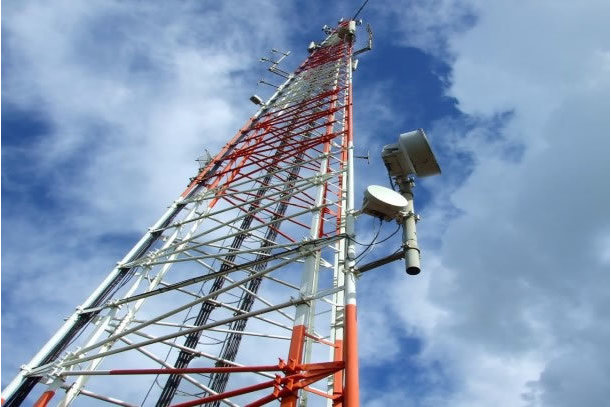Latest News
Telecom industry contributes $21 billion to Nigeria’s GDP

News Highlight
The GSMA report also shows that smartphone adoption has risen to 53 million connections and is expected to reach 144 million by 2025.
The Global System for Mobile Communications Association (GSMA), a trade body representing mobile operators worldwide, has released a report showing the contribution of the mobile mobile telecommunication market to Nigeria’s economy. According to the report, the telecom industry contributed $21 billion to Nigeria’s gross domestic product in 2017, representing 5.5 per cent of the country’s GDP.
The report, titled, Spotlight on Nigeria: Delivering a Digital Future, was launched at an event organised by GSMA and the Nigerian Communications Commission (NCC) on Thursday. The report also shows that 16 per cent of government tax revenue, or an equivalent of $1.8 billion, came from the telecom value chain.
“The mobile industry is not only a significant contributor to the economic activities of Nigeria but also towards the growth of other sectors of the economy,” said Umar Danbatta, Executive Vice Chairman and CEO of the NCC. “The Nigerian Communications Commission has been, and continues to play a key role in the development of mobile communication in Nigeria.”
The event brought together operators, regulators and investors in the mobile ecosystem to discuss future regulations that will enable the deployment of 5G connectivity in the country. Modernising regulation and policy reform, according to the report, would help to boost Nigeria’s digital economy and accelerate internet access for more people through increased mobile broadband penetration.
“The Federal Government has begun a regulatory and policy framework that will enable the deployment of 5G network by 2020,” said Danbatta. “In the world we live in today, mobile communication is a cardinal tool of economic development, growth and integration, and the mobile industry is a key enabler of productivity across economies and societies.”
The report also reveals that smartphone adoption has risen to 53 million connections and it is expected to reach 144 million by 2025. 49 per cent of the population is currently connected by mobile technology, compared with less than one per cent who have a fixed-line connection.
The report concludes that there is still a broad scope for Nigeria to increase its mobile penetration, as the country lags behind regional peers in 4G adoption. With increased spectrum harmonisation and policy reforms, the country’s mobile penetration is projected to rise to 55 per cent of the population by 2025, with 70 per cent having 3G connectivity and 17 per cent having access to 4G networks.
Currently, only 44 per cent of mobile subscribers are using 3G technology, compared with over 18 per cent 4G penetration in South Africa and 16 per cent in Angola. Only 4 per cent of Nigeria’s population are using 4G technology.
“For Nigeria to take full advantage of the next phase of its digital transformation, it’s vital that collaboration between industry and government enables the right policy environment for millions more to benefit from ultra-fast mobile broadband,” said Wale Goodluck, Head of Sub-Saharan Africa at GSMA. “
For future reforms, the GSMA recommends that the NCC retire digital mobile licence, the national carrier licence and the international gateway licence; eliminate superseded conditions in the Unified Access Service Licence (UASL) and migrate many others towards a supplementary general UASL conditions or to parallel regulations; and transition to an indefinite duration for the UASL.
Founded in 1995 and headquartered in London, United Kingdom, the GSMA represents the interests of mobile operators worldwide. The association unites more than 750 operators with over 350 companies in the broader mobile ecosystem, including handset and device makers, software companies, equipment providers and internet companies, as well as organisations in adjacent industry sectors.
Related News
Latest Blogs
- How Tinubu is ensuring equitable access to public services
- Nigeria’s economic reform faces new threats
- What Ould Tah’s tenure at BADEA reveals about his AfDB candidacy
- Implementation strategy crucial for the success of 12-4 education policy
- A senator’s suspension threatens the right of representation
Most Popular News
- Artificial intelligence can help to reduce youth unemployment in Africa – ...
- IMF warns of global public debt approaching 100 percent of GDP
- Rise in vaccine-preventable disease outbreaks is a threat, warn WHO, others
- Nigeria records $6.83 billion balance of payments surplus in 2024
- Tariffs stir inflation fears in US but offer targeted industry gains ...
- Soaring civil unrest worries companies and insurers, says Allianz









